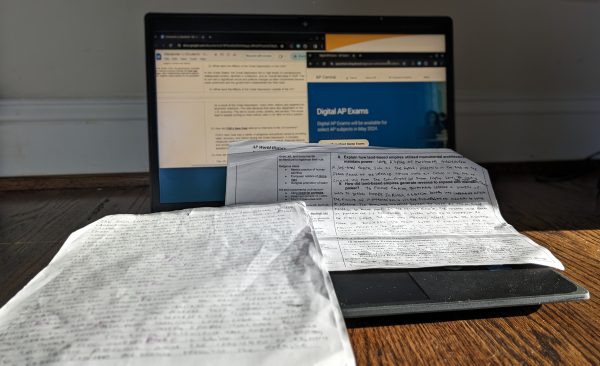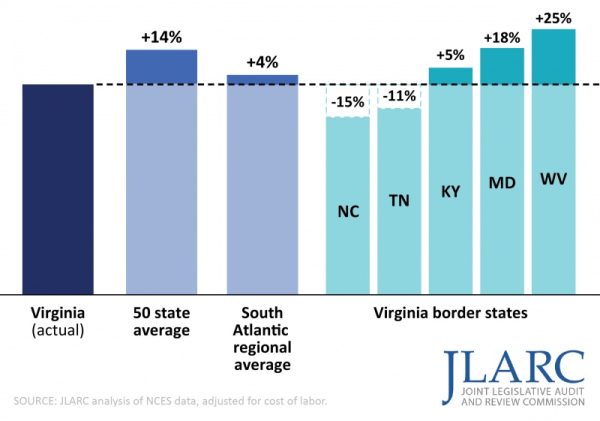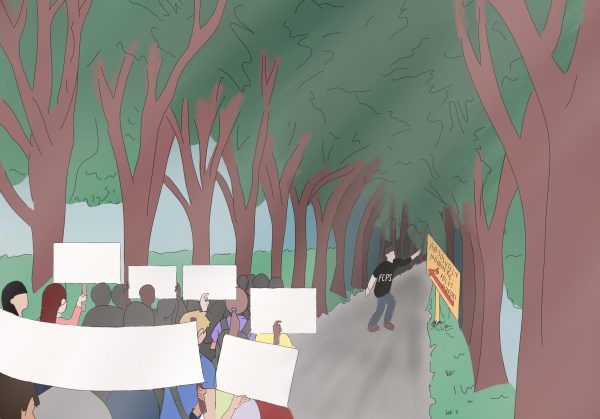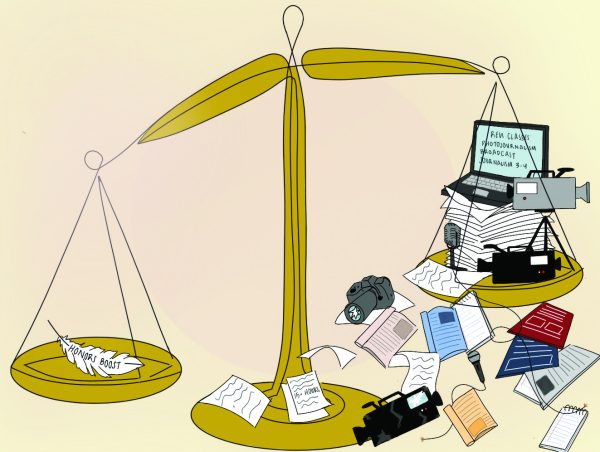Climate change in the wake of Trump
New administration poses serious threat to environmental protection
April 18, 2017
Climate change is an imminent threat that lurks in the background of political discourse and threatens to permanently alter the state of our planet.
In our day-to-day lives, the creeping effects of human-caused global warming are seldom acknowledged, yet the clear rise of global temperatures threatens our long-term prosperity.
The election of Donald Trump and his cabinet appointments that deny the effects of climate change will only accelerate the arrival of this serious threat.
The Problem
Recent research has indicated that climate change is indeed a serious threat. The 10 hottest years on record have all occurred since 1998, with 2016 charted as the single hottest year on record since 1880.
“Scientific evidence for the warming of the climate system is unequivocal,” the Intergovernmental Panel on Climate Change (IPCC) stated in its Fourth Assessment Report in 2007.
This warming has been scientifically proven to be largely human-sourced. The increase in carbon dioxide emissions since the Industrial Revolution has caused more of the sun’s radiation to be reflected back to Earth, which has led to a steady rise in average global temperatures. Since humans are clearly the cause of global warming, it will not disappear unless we are a part of the solution as well.
However, there is currently clear partisanship surrounding climate change, in which the Trump administration and the majority of Republicans in Congress deny the importance of addressing the problem. This denial will prevent emission reduction necessary to limit long-term damage, especially since many voters are unaware of the scientific evidence.
“Environmentalism is kind of an odd thing. It’s one of those topics where if you can’t see it, feel it, smell it, taste it, people think it’s not a problem,” government teacher Ian Howell said.
Attempted Change
One attempt to solve this critical problem was the 2016 Paris Climate Agreement, which set a goal to reduce greenhouse gas emissions and established the U.S. as a leader in global efforts to fight climate change.
Under Trump, there will not likely be any such actions, and global temperatures are predicted to rise three degrees Celsius this century according to the IPCC. However, the goal of the Paris Agreement is to reduce the long-term repercussions of climate change and limit the rise in temperatures to less than two degrees.
“Where is the push? This climate deal doesn’t have an enforcement mechanism, which is the flaw to it,” Howell said. “It’s more about collective guilt. It isn’t like every other member of the group [of countries that signed the agreement] will immediately put sanctions on you for not trying to comply. Don’t think of the agreement as this major success story.”
Potential Actions
The Trump administration is expected to bring a significant change to U.S. environmental policies. Trump’s record shows him to be a climate change denier.
Trump claims that nobody really knows if climate change is a legitimate threat. One of his more disturbing tweets claimed that climate change is a hoax created by the Chinese, illustrating his inability to accept the reality that is widely affirmed by the scientific community.
Trump’s pending decision to withdraw from the Paris Agreement could be devastating for the global community.
“If you believe in the science, then there’s no doubt that if we don’t progress on the path that’s been designated by the international community, then it won’t work,” Howell said. “Because if we don’t follow [the Paris Agreement], why will China? Why will India?”
Yet, several members of the new administration continue to deny the existence of climate change.
“Climate change is real and it is something that the federal government should be concerned with in order to protect future generations. It serves the Trump administration no purpose to say that climate change is not real. Why lie about something that has been proven by scientists and data?” senior Maddie Scherer said.
This widespread denial threatens the global effort to decrease emissions.
“The movement [the Trump administration] has made to want to leave the Paris Agreement does not give me much hope. I think in the next three to five years we’ll start to see an increase in carbon emissions. It’s setting us on a different trajectory,” environmental science teacher Kip Rogers said.
Scott Pruitt, Trump’s nominee for Environmental Protection Agency (EPA) administrator, spent his time as the attorney general of Oklahoma suing the EPA a total of 14 times. This nomination signals Trump’s plan to move away from Obama’s legacy of climate change prevention.
Pruitt harbors extreme hostility toward the very agency he is now nominated to serve as chief administrator for. He has been vocal about his opinion that climate change may not be real.
Based on his nominees, Trump’s approach will be centered around promoting business competitiveness in the fossil fuel industry, completely ignoring the threat of global warming.
Dangers
On top of the nominees Trump has appointed, he also issued an executive order freezing all EPA grants and contracts.
“[Trump] could do it—Reagan did it,” Howell said. “Reagan put the EPA and Interior back 20 years. He gutted it. Even simple stuff like taking the solar panels off the roof of the White House.”
This is largely due to the leeway the Trump administration has in enforcing environmental legislation and using the budget that Congress allots the EPA.
“A lot of the EPA and these agencies [use] discretionary money. So if Congress, with the Clean Air Act or Clean Water Act, says to the President ‘clean the air and water,’ they’re not telling him which compounds or which particulate matter, or to regulate diesel engines or gas engines,” Howell said. “They’re just saying, here is our base goal, now do this. So, as a result, presidents have incredible leeway.”
However, Congress does have some ability to check the president’s power.
“Congress doesn’t have to agree to the budget cut [of the EPA’s budget]. Congress can actually award the EPA more money than the president requests,” Howell said.
The Trump administration could potentially initiate a complete shutdown of the EPA and its most basic regulatory powers, such as its ability to enforce the Clean Air Act and Clean Water Act.
Trump will put businesses first, meaning major increases in carbon and pollution emissions from the fossil fuel industry will occur.
“We are going to have the Petroleum Institute take priority for the next four years. We already had that with [George] W. Bush.” Howell said.
These dangerous emissions have affected McLean residents and the greater area for years.
“We were in violation of the Clean Air Act for a long time. For 10 years running, Congress every year had to pass an addendum to the Clean Air Act allowing us to be above the legal pollution limit,” Howell said.
This will undermine the Obama-era efforts to reduce greenhouse gas emissions, advance clean energy sources and deter global efforts to reduce long-term repercussions of global warming.
“[Trump] will put us back 20 years. We take so many steps forward and a couple steps back,” Howell said.
Change
It is essential that students who are concerned about the future of the planet step up and challenge this rebuke of widespread scientific evidence.
“You can join groups, but if you do this don’t just give them 20 bucks. You have to go to the meetings and take part,” Howell said.
Students can participate in grassroots outreach efforts to engage in political discourse on environmental issues and ensure that it is a critical issue in the campaign process.
“Find an issue you really care about and find groups online or elsewhere in the local community,” Rogers said. “They will need all the help they can get in the coming four to eight years.”












